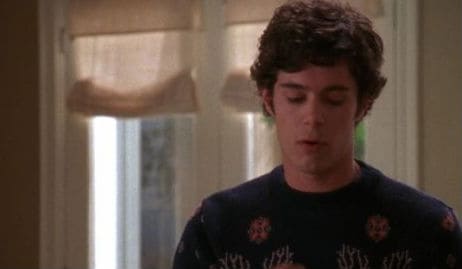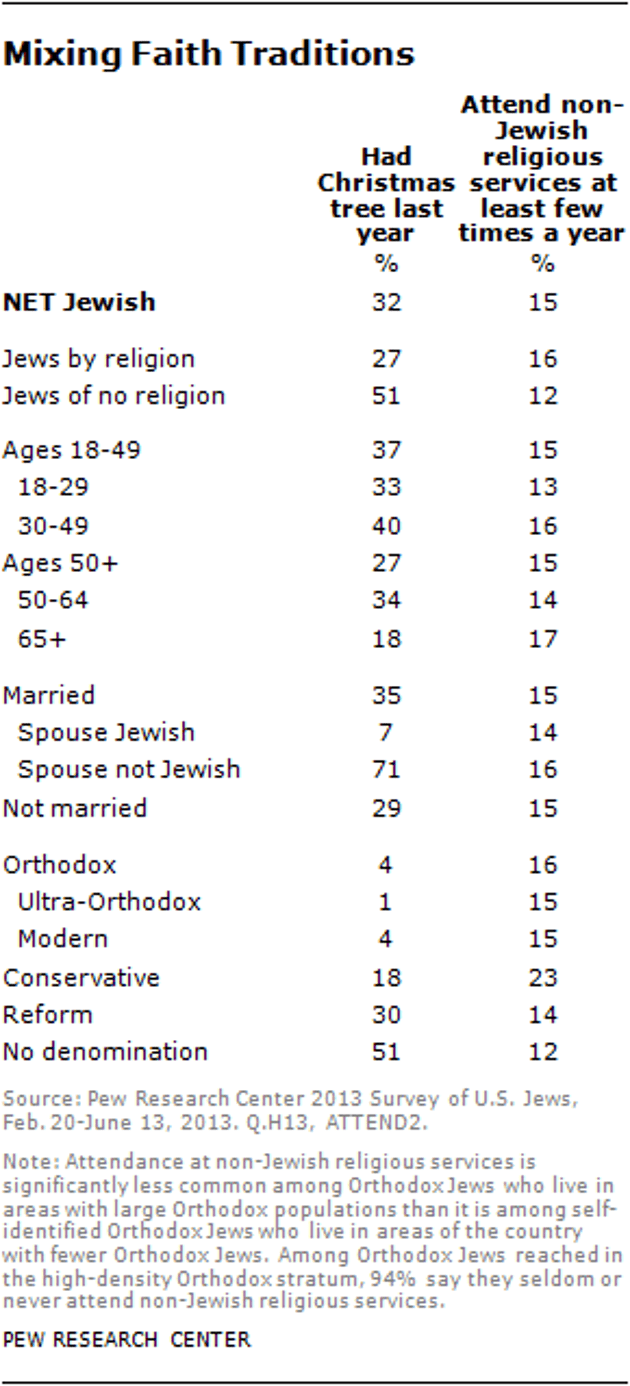
Christmas is often considered a Christian holiday since it celebrates the birth of Jesus Christ.
But it's also a time when Jewish believers say they feel the most Jewish.
This is because Jewish believers who live in the diaspora - or, not in Israel, like American Jews - and feel different than the rest of society, find pride in their culture and promote Jewish cultural customs and traditions during this time, Raphael Poch wrote for The Israel National News.
"When it comes to Jews living in the diaspora, nothing says Jewish as much as not fitting in," Poch wrote. "And no day sees more Jews sidelined from social events, being forced to take vacation and suffer even if they stay home due to the constant encroachment of Christian-themed TV broadcasts, radio jingles and even Internet ads on social media than Christmas. Christmas may be the single most defining day of the year for Jewish culture. One in which Jews the Western hemisphere over feel like they are just different."
There are a number of traditions Jews embrace during the Christmas season, including "The Matzoball," an event where single Jewish believers "get together and throw a counter-party on the night before Christmas," Poch wrote.
This event became so popular during the Christmas season that Jewish organizations, like the Society for Young Jewish Professionals, have started other "The Matzoball" events throughout the rest of the calendar year, Poch reported.
The other major tradition Jewish people embrace during the Christmas season is less matzo and more lo mein - eating Chinese food.
Last year, The Atlantic's Adam Chandler wrote an in-depth piece about the tradition, for which Jews eat Chinese food and watch movies on Christmas night.
"For many Jewish Americans, the night before Christmas conjures up visions, not of sugar plums, but plum sauce slathered over roast duck or an overstocked plate of beef lo mein, a platter of General Tso's, and (maybe) some hot and sour soup," Chandler wrote.
This tradition started back at the turn of the century when there was a boom of both Jewish and Chinese immigrants in the United States. Jewish people would often flock to Chinese restaurants on Sundays and on Christmas since those eateries were open on those days, Chandler explained.
It also helped that most Chinese food is dairy-free and fits with Jewish religious beliefs, Chandler wrote.
"Indeed, it was something of a perfect match," he wrote. "Jewish law famously prohibits the mixing of milk and meat just as Chinese food traditionally excludes dairy from its dishes."
But not all Jewish believers embrace these Jewish Christmas traditions, and they celebrate a traditional Christmas. About a third of American Jews put a Christmas tree in their homes, the Pew Research Center reported. It's especially common among Jewish believers who have married non-Jews.
It's also especially popular among the youth, as those 65 and older are less likely to have a tree. Orthodox and ultra-Orthodox Jews also are less likely to have trees in their homes, Pew found.
There's often been a divide among Jewish believers about whether to celebrate Christmas, especially for religious reasons that don't line up with Judaism or highlight Jewish culture, Time's Charlotte Atler wrote.
But many say the holiday is a national celebration that all Americans, especially kids, should be allowed to enjoy - no matter their religious beliefs.
By putting trees in their homes or buying Elf on a Shelf toys, some Jews are already doing that, Atler wrote. Hopefully, she said, more Jews will spread their Christmas cheer and show the holiday is for Jews, too.
"So this year, give in to your 'elf envy' if you feel like it. It's time to come out as a Christmas Jew," Atler wrote. "Grab a candy cane, hum a carol, pretend you're in a Norman Rockwell painting. And Merry Christmas to all, especially to the newcomers."


